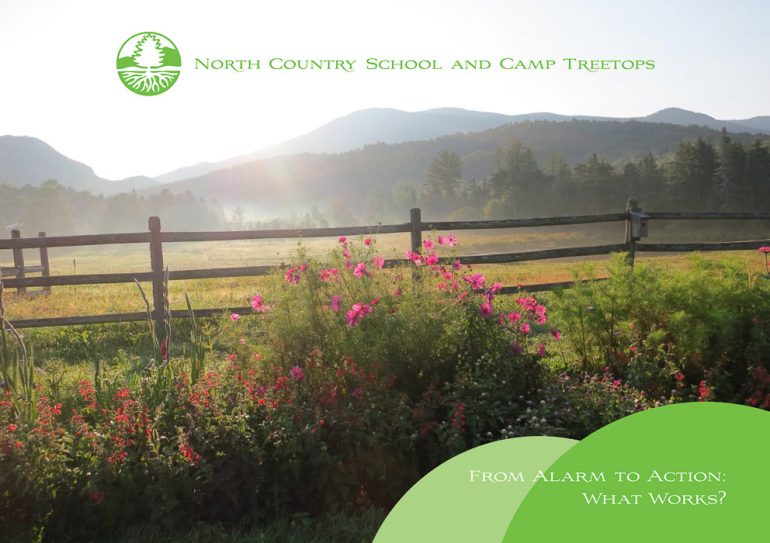North Country School and Camp Treetops sponsored a great panel discussion Tuesday night as part of Climate Week NYC. The event featured three voices looking to convert climate talk into climate action. They approached the issue of climate change, and our impending ecological crises, from different angles. Why is this climate conversation necessary? How does it translate into climate action?
Here is a bit of what they talked about:
[We need to] create conditions that change the flavor of society.
– Bill McKibben
President and Co-Founder, 350.org, and author of Oil and Honey, Eaarth, Deep Economy and The End of Nature, among others.
McKibben opened with an overview of the current facts on climate change. He pointed to recent extreme weather events like drought followed by flooding in the Midwest and hurricane Sandy and the flooding of the NYC subway system. For the audience in New York, this example hit home. Sandy was the lowest barometric pressure recorded north of Cape Hatteras, NC to date. These data points (among others), he concludes, are clear indications that the basic conditions have changed, and the time to act is now (if not yesterday or last decade).[ref]While not a specific topic of discussion at the event, it may be worth noting that most scientists are hesitant to point to any one weather event and yell “Climate change!” However, the preponderance of scientific data (ocean warming, ocean acidification, sea ice melt, etc.) coupled with trends in extreme weather events is more than just a strong indication of climate change.[/ref] Recent initiatives of 350.org have drawn attention to our need to keep as much of this carbon in the ground, and not simply to find cheaper or domestic fossil fuel sources (in shale gas or tar sands oil). Last year they worked collaboratively to organize a protest at the White House against the Keyston XL Pipeline. The protesters encircled the White House six people deep.
[separator type=”thick”]
[We need to engage] people who don’t think of themselves as environmentalists… this is a critical issue that must be talked about.
– Tom Steyer
Co-founder of the Next Generation and the founder and co-managing partner of Farallon Capital Management, L.L.C.
Steyer’s background in private capital management gave him a unique perspective among the panelists. He drove home the point that people need to be politically active. This is the only way the economic incentives will change to reflect the actual cost of producing ‘dirty energy’. Conversation needs to be, “a means to changing peoples votes.” Steyer has been particularly outspoken, along with Bill McKibben, on the Keyston XL pipeline, and how it reflects the larger political and economic obstacles and possibilities. You can read more on his position in this recent article in The New Yorker.
[separator type=”thick”]
[The issue is] changing peoples mindset
– Richard Rockefeller
Rockefeller Brothers Fund
Rockefeller’s comment was directed to the questions of how we engage people to act in the present on climate change. The problem, he pointed out, is found in ingrained mental processes and pathways. There is a need to move us toward greater mindfulness of time – both the present moment and the future possibilities. The facts are not always enough to empower people toward this deeper, self-reflective, kind of change.
[separator type=”thick”]




